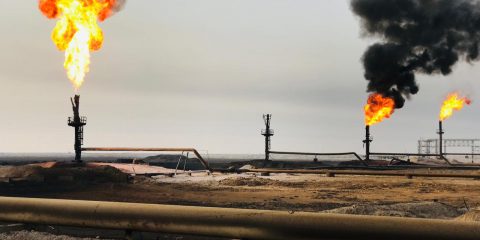From Beirut to Baghdad: Elections, Iran and the Future of the Middle East
Elections in Iraq and Lebanon symbolize emerging trends and cleavages in the Middle East. Allies of Iran seek to consolidate power through the ballot box in both countries. With Islamic State largely defeated, these are the first major elections of a post–ISIS era. Although the United States, its regional allies and some European countries see […]Seth J. Frantzman writes for The National Interest:
Elections in Iraq and Lebanon symbolize emerging trends and cleavages in the Middle East. Allies of Iran seek to consolidate power through the ballot box in both countries. With Islamic State largely defeated, these are the first major elections of a post–ISIS era. Although the United States, its regional allies and some European countries see Iranian influence in the region as a threat, the allies of Iran argue that they have brought stability to Iraq and Lebanon by helping to defeat ISIS and other jihadist groups. Beirut and Baghdad are key allies of Washington in the region, but Western powers face a catch-22 in both countries. The more they support them, the more Iran’s influence also benefits and its militia allies, such as Hezbollah or the Badr organization in Iraq, receive increased ballot box legitimacy.
Iraq and Lebanon are heading to elections on May 6 and 12. Both elections are important and will affect the region. In Iraq there are 6,900 candidates vying for 329 seats in parliament. Besides Prime Minister Haider al-Abadi, who heads his own “victory” list, familiar faces are competing and many of those running are incumbents. The Shi’ite strongman Nouri al-Maliki, who was pushed out as prime minister in 2014 as ISIS advanced on Baghdad, is running again. Muqtada al-Sadr, the Shi’ite cleric is also leading a list, as are Osama al-Nujaifi and Ayad Allawi. Nujaifi and Allawi’s lists receive many of their votes from the Sunni Arab minority. Among the Kurds, Nechirvan Barzani will head the Kurdistan Democratic Party’s campaign and the other Kurdish parties, such as the Patriotic Union of Kurdistan, will compete separately.
The extremely divided playing field in Iraq could be seen as a sign of a healthy democracy fifteen years after the United States overthrew Saddam Hussein. But the country is deeply divided on sectarian lines and millions of internally displaced people have not returned home after the battles against ISIS. In addition, Kurds complain that they have lost influence over disputed areas in Kirkuk and Sinjar. Prior to 2014 the autonomous Kurdistan Regional Government and Baghdad had shared responsibilities in these areas, but after the Kurdish referendum in September Baghdad sought to assert total federal control. The KDP, for instance, is not running in Kirkuk and some Yazidis have complained about the heavy-handed presence of Shi’ite militias in Sinjar. Instability in these areas, including the presence of continued ISIS activity, threaten a lower voter turnout.





